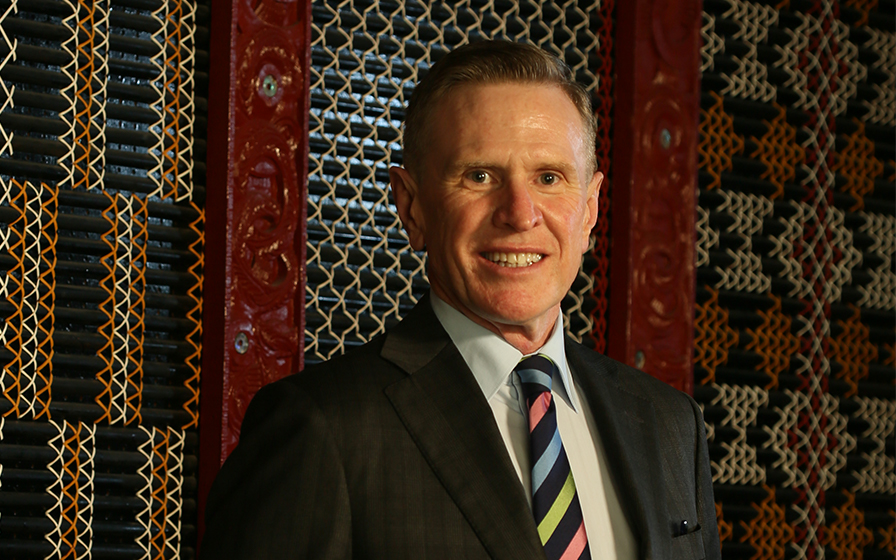New Infrastructure Commission board announced
It will have two overarching functions: strategy and planning and delivery support.
It will have two overarching functions: strategy and planning and delivery support.
Infrastructure Minister Shane Jones has named former Reserve Bank governor Dr Alan Bollard as chair of the new independent New Zealand Infrastructure Commission, Te Waihanga.
The commission is tasked with developing a long-term infrastructure plan and pipeline and helping governments make decisions to improve the wellbeing of all New Zealanders.
Jon Grayson has been appointed by the board as chief executive. He is currently deputy secretary financial and commercial at the New Zealand Treasury and has played an integral role in the establishment of the new commission.

The government allocated $41 billion in Budget 2019 for capital spending over the next five years, focused on building schools, hospitals, houses, roads and public transport.
“Because of this, the two overarching functions that Te Waihanga will have – strategy and planning, and delivery support – are more important than ever. The commission will develop a 30-year infrastructure strategy for New Zealand, as well as producing a pipeline of major projects, both of which I’m aware are keenly anticipated by the sector,” Jones said.
“It’s easy to demand increased spending on infrastructure, but more difficult to create the conditions conducive to this. The Coalition government knows delivering the schools, transport system, and hospitals New Zealanders need takes more than just rhetoric, and I’m proud to be delivering the next step toward realising our ambitious capital expenditure programme,” Shane Jones said.
The New Zealand Infrastructure Commission is on track to be operational by October this year.
New Zealand Infrastructure Commission members:
Dr Alan Bollard (chair) is a professor of practice at Victoria University of Wellington. He has extensive experience as a senior public servant. He has previously held roles as the executive director of the Australia Pacific Economic Cooperation (APEC) Secretariat, Governor of the Reserve Bank of New Zealand, and secretary of the New Zealand Treasury. He holds a PhD in economics and an honorary Doctor of Laws from Auckland University.
Jon Grayson (chief executive) is currently deputy secretary commercial and financial at the New Zealand Treasury and is responsible for Treasury’s debt management, the Crown’s commercial portfolio and advice on infrastructure and housing policy. He has a strong background in capital markets and major infrastructure investment management and has held senior executive roles within the public and private sectors.
David Cochrane is currently a special counsel at Simpson Grierson. His experience includes drafting law in New Zealand and overseas, and he has advised on the implementation of government policy in a range of areas including local government, transport, government administration, corporatisation, conservation, superannuation, primary industry and health.
Raveen Jaduram is currently the chief executive of Watercare Services. Prior to this, he was the managing director of Murrumbidgee Irrigation, a private water company in Australia. Jaduram has a masters in civil engineering and more than 20 years’ experience working in the water industry in New Zealand and Australia. He has deep institutional and systems knowledge of the infrastructure sector and has worked with a variety of stakeholder across the public and private sector.
Sarah Sinclair is a member of the Expert Review Panel for the New Zealand Infrastructure Commission, Te Waihanga establishment project. She is currently a partner at Minter Ellison Rudd Watts, and is chair of Minter Ellison Rudd Watts Partnership. Sinclair has extensive experience acting for both government and private sector clients in large-scale, complex infrastructure projects. She is known for providing commercially pragmatic, strategic advice on infrastructure funding models, procurement strategies and contracting structures. She has extensive experience in infrastructure and construction law.
Stephen Selwood is the chief executive of Infrastructure New Zealand and has an understanding of strategic governance and integrated long-term planning linked to the effective funding, regulation, and delivery of New Zealand’s infrastructure system. He has extensive experience in leadership and governance across the infrastructure sector, and has worked extensively with ministers and the public and private sector.
Sue Tindal is an experienced banker and chief financial officer with extensive knowledge of domestic and global markets, including structuring large multi-currency infrastructure financing programmes. She has proven experience and knowledge in government, financial services, technology, energy, transport and logistics sectors across both regulated and non-regulated environments. Tindal has lead and delivered large infrastructure and technology projects in New Zealand, Australia and Asia that required complex internal and external stakeholder management. She is a Fellow, Certified Practising Accountants of Australia.
This is supplied content and not commissioned or paid for by NBR.